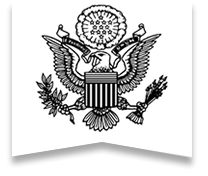Quigley Hosts Transparency Caucus Briefing with Former Ethics Chief, Walter Shaub, on Strengthening Accountability in the Executive Branch
Yesterday, Representative Mike Quigley (IL-05), co-chair and co-founder of the Congressional Transparency Caucus, hosted a transparency briefing with former Director of the Office of Government Ethics (OGE), Walter Shaub. Mr. Shaub resigned from his post in July following President Trump's refusal to divest his business interests and the Administration's delay in disclosing ethics waivers for appointees. He now serves as Senior Director of Ethics at the Campaign Legal Center.
"The sheer number of ethical dilemmas and controversies that surround the Trump White House is exhausting," said Rep. Quigley. "Sadly, President Trump has consistently disregarded the ethical standards that we have come to expect from the highest office in the land. Unfortunately, that behavior did not stop with the Commander in Chief as several of the President's cabinet secretaries have come under fire for spending exorbitant amounts of taxpayer money for their own private air travel. With an Executive Branch so willing to neglect basic ethical standards and precedents, Congress needs to step up to enforce laws already on the books and pass new legislation that holds all government employees accountable for their actions."
"Today, I was pleased to join Rep. Quigley and CREW to discuss several issues related to the intersection of transparency and government ethics," said Walter Shaub, former OGE Director. "GSA's ongoing refusal to serve as a clearing house for the reports of senior official travel on government aircraft that it collects twice per year is impeding access to these important records by requiring members of the public to file separate requests with each of the more than 130 government agencies. Additionally, Congress can address OGE's posting of ethics information, which happens on a voluntarily basis, by establishing a legal requirement that OGE must post certain ethics records on its website for public viewing. Lastly, we discussed a transparency success story in connection with the public release of ethics waivers following a request from OGE and a subsequent bipartisan request from Congress. Congress can increase transparency by strengthening OGE's authority to collect these and other types of ethics records."
The panel highlighted three legislative proposals Congress could make to improve the public's trust in government. Of those proposals, the disclose of ethics waivers, or exemption from current government ethics policies, is for the most part already adhered to. On the other hand, Congress could require the General Services Administration (GSA) to post their travel reports online. The agency already collects these reports twice a year for all 130 government agencies, however, for the public to gain access they must file a Freedom of Information Act (FOIA) request through each individual agency. The panel further highlighted the amendments Congress can make to the Ethics in Government Act to increase oversight of government officials. The information currently posted meets the bare minimum requirements, and often results in misunderstandings or FOIA inquiries for additional information.
"Transparency efforts directed at ethics processes can be some of the most valuable that Congress can undertake because they protect the integrity of the entire spectrum of government decision-making," said Jennifer Ahearn, Policy Counsel for Citizens for Responsibility and Ethics in Washington (CREW). "Transparency in the ethics regime is also critical to Congress's ability to conduct the thorough oversight that the Constitution contemplates and the American public expects. Congress's efforts in this area would return dividends well beyond their cost."
"By taking necessary action, Congress can restore Americans' faith in their government, support their role as government watchdog, and prove to the public that we are worthy of the responsibility we've been given," continued Rep. Quigley.
From fighting to make Congressional Research Service (CRS) reports available to the public to introducing the COVFEFE Act and MAR-A-LAGO Act to enforce accountability, Rep. Quigley has been an outspoken leader on the need to increase transparency at every level and every branch of government.
